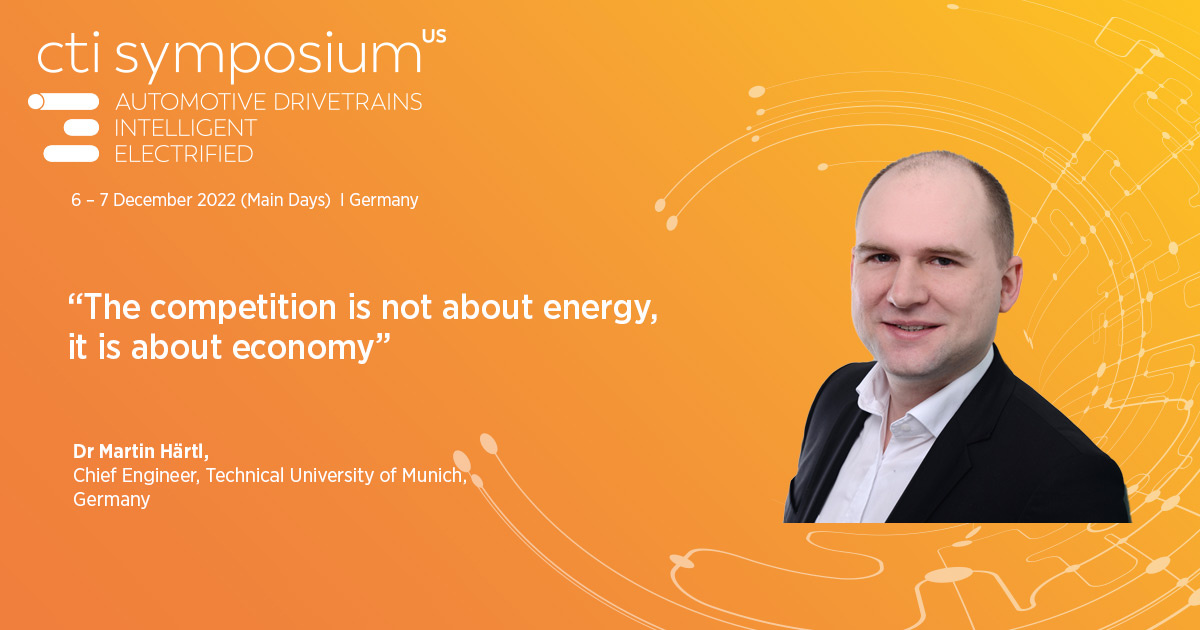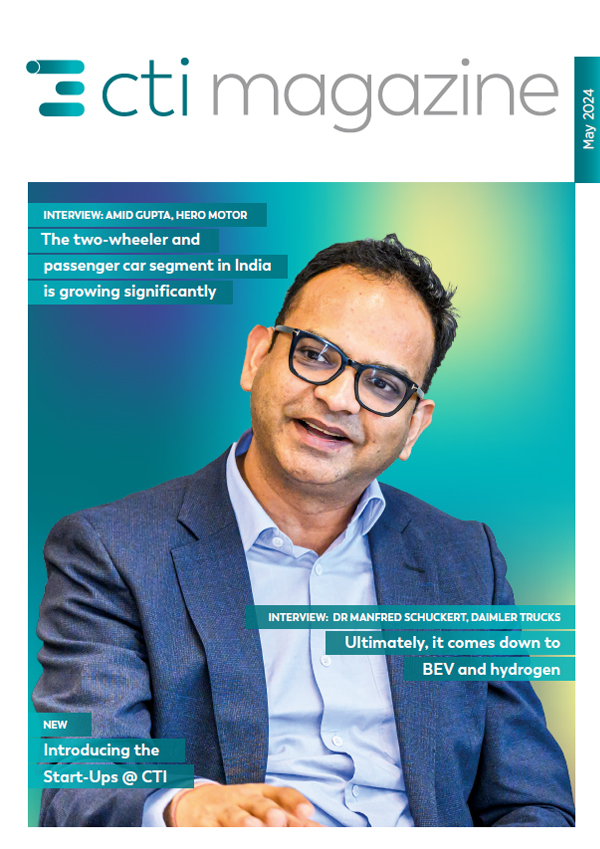
At the CTI symposium in Berlin from 6-7 December, Dr Martin Härtl, Chief Engineer, Technical University of Munich, Germany, will speak about the topic “E-fuels: indirect electrification of the transport sector”.
We had the opportunity to interview Dr Härtl in the run-up to the CTI symposium.
In Berlin, you will talk about “indirect electrification” through e-fuels. In which transport sectors do you favour these primarily?
E-fuels are an interesting alternative to fossil-based fuels for hard-to-abate applications where high energy density storage is required, such as for ships, aircraft, and long-haul on-road transport. Short- and medium-term it should be considered to use E-Fuels as a drop-in solution to lower the GHG impact of the non-electrified vehicle fleets during a transition period. Long-term, carbon-free E-Fuels like hydrogen and ammonia are expected to play an important role.
What do you think about the often-heard criticism that e-fuels cannot compete in terms of efficiency?
Of course, the conversion of electricity to E-Fuels and all further conversion steps cost a lot of energy. But the competition is not about energy, it is about the economy. When there is a limit in the domestic production of electricity and the volatility of sun and wind does not match the demand curve, we have to import energy from elsewhere. And for the same investment, the output of a wind farm in Chile or a PV plant in the Middle East is much higher, so this solution can be cost-competitive.
Electric energy has become significantly more expensive since early 2021. How could that affect the vehicle electrification plans and maybe even cause a certain shift towards advanced hybrid solutions?
There is no alternative to electrification when we want to avoid GHG. I believe that in the long term the bottleneck will be raw materials rather than the electricity supply. And E-Fuels can be seen as a way of saving resources in energy storage. Car drivetrains also have to save resources, and I think the best way to do that would be to make smaller vehicles with lower power demand more available and attractive. I am sure that customers would welcome that today more than they did in the past.
Thank you for these insights, we are looking forward to your speech in Berlin.
Questions: Gernot Goppelt
